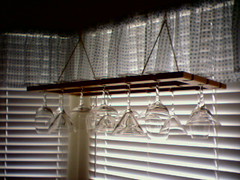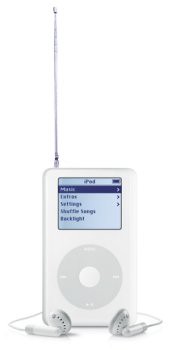
Podcasting. For those who may not have heard of it, a podcast is a compressed sound file that a person has put online for download via an RSS reader.
(If you don't know what RSS is about, here's a
precis: an
RSS feed is an XML file that one puts online to advertise to the world that you have things [usually news stories or blog posts, or, lately, podcasts] that they might like to download. An
RSS reader is a program (which might operate as the basis for a site like
Bloglines.com, or might run on one's desktop) which allows a person to "subscribe" to RSS feeds that he or she wants to keep track of, and which highlights new items that might have appeared in an updated feed.
Brain Squeezings has its own RSS feed [which happens to be in Atom format, but that's not important], if you want to subscribe. RSS feeds are an incredibly efficient way to keep on top of news sources--I keep track of something like 25 feeds every day, on subjects from friends' blogs to tech news to wine reviews.)
...But this post is about podcasts. It's possible to link to an external file (called an enclosure) with a RSS feed entry, and if that enclosure is an audio file like an MP3, then you have a podcast. It's that simple. (The "pod" in podcast, by the way, comes from "iPod," currently the most popular player for compressed sound files, though anyone with
iTunes [free] or Windows Media Player [also free, with Windows] can listen on their computer.)
Most people create podcasts in order to host their own music or talk-radio shows (responsible podcasters pay a fee to ASCAP and whomever else in order to play copyrighted music), or simply to have a blog that their readers can listen to. I finally got hooked on podcasts by grabbing the first eight episodes of
Grape Radio, which is a trio of guys who just talk about wine. They frequently have guests on their show, and it's a well-produced bit of work, complete with bumper music and reading of credits at the end.
But podcasts aren't necessarily just for audioblogs and net-cast radio shows: it's not hard to envision a means wherein one's telephone messages are published for your perusal by your phone-service provider on a secure feed, or wherein radio shows publish popular "back-issues" of shows as podcasts (which, I understand, some shows are beginning to do), or indeed any audio information can be made available, TiVo-like, to anyone who wants it.
Here's the kicker: podcasts, as a concept, have only been around since September-ish of last year, and a
Google search on 'podcast' yields around 1,790,000 hits as of this writing. This could be big...
LinksOne story of how podcasting startedA very thorough definition of 'podcast'NYT on Podcasting (requires a free registration)Mac HowtoOther documentation-Rich
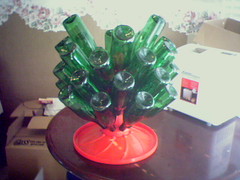
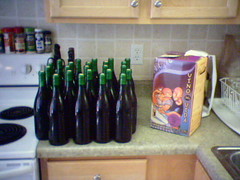
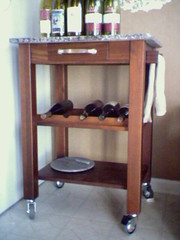
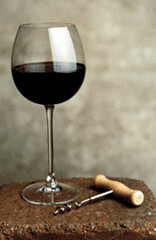 This may sound like it's come out of left field to most readers here, but the more I learned about podcasting (see the previous post), the more I became intrigued by the idea of spouting off in audio form about all things wine-related.
This may sound like it's come out of left field to most readers here, but the more I learned about podcasting (see the previous post), the more I became intrigued by the idea of spouting off in audio form about all things wine-related. Podcasting. For those who may not have heard of it, a podcast is a compressed sound file that a person has put online for download via an RSS reader.
Podcasting. For those who may not have heard of it, a podcast is a compressed sound file that a person has put online for download via an RSS reader. 